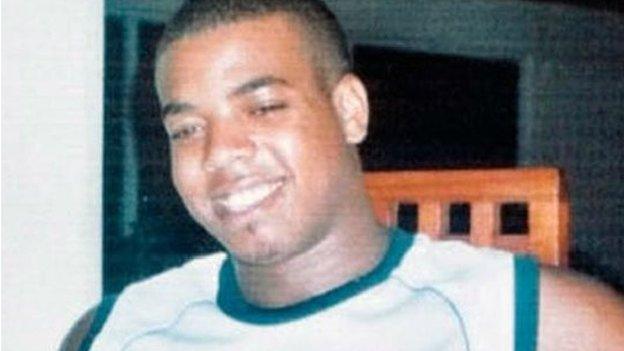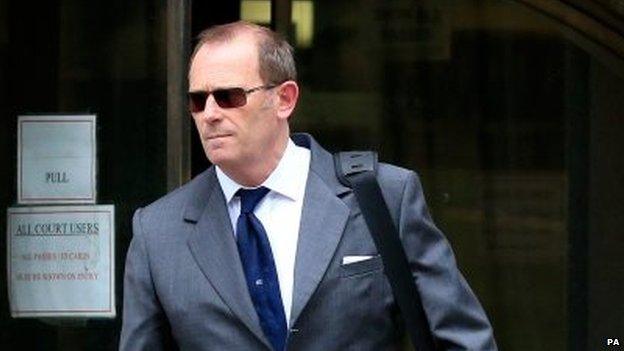Azelle Rodney 'about to shoot' officer Anthony Long tells court
- Published

Azelle Rodney was shot six times during a Met Police operation to apprehend an armed gang
A former police marksman accused of killing a man during a surveillance operation was convinced the suspect had picked up a gun and was about to start shooting, a court has heard.
Anthony Long told the Old Bailey Azelle Rodney had "made a totally unnatural movement" which firearms officers were taught signalled an intent to open fire.
Mr Rodney was killed in Mill Hill, north London, in April 2005.
Mr Long, 58, denies murder.
"Most difficult decision"
Earlier, the court was told Mr Long had fired eight short-range shots in just over two seconds, six of which had hit Mr Rodney.
He told the court his decision to open fire on Mr Rodney was "the most difficult decision I've ever made".
He added: "If I got things wrong because it happened so quickly I apologise but Azelle Rodney did pose a threat."
Examining details in "freeze frame" and spending "10 years" analysing them was "nice" Mr Long said, but at the time: "I didn't have 10 years".

The retired police officer had 30 years' experience of handling firearms when he shot Mr Rodney
He told the court he was part of a firearms team supporting a surveillance unit monitoring a group of suspects thought to be armed.
Officers believed the men were on their way to rob a group of Colombian drug dealers in Edgware, the court heard.
The police convoy boxed in the suspects' car, bringing it to a halt.
"I opened fire"
Mr Long, of Leatherhead, Surrey, said he was focused on a rear seat passenger who was looking around and who caused him "grave concern".
He said the suspect looked left, looked right then ducked down before springing back up.
"I was convinced he'd picked up a gun...so I opened fire," he told the court.
"I could see no indication my rounds were having any effect", he said, so fired more shots.
Mr Long said Mr Rodney's movements had not been due to the collision between cars, and he thought he had "posed an imminent threat to my colleagues".
The "majority" of people confronted by police intervention of this type would "freeze" he added.
He told the court he had been part of "many hundreds" of firearms operations but had "very rarely opened fire".
The trial continues.
- Published11 June 2015

- Published10 June 2015
